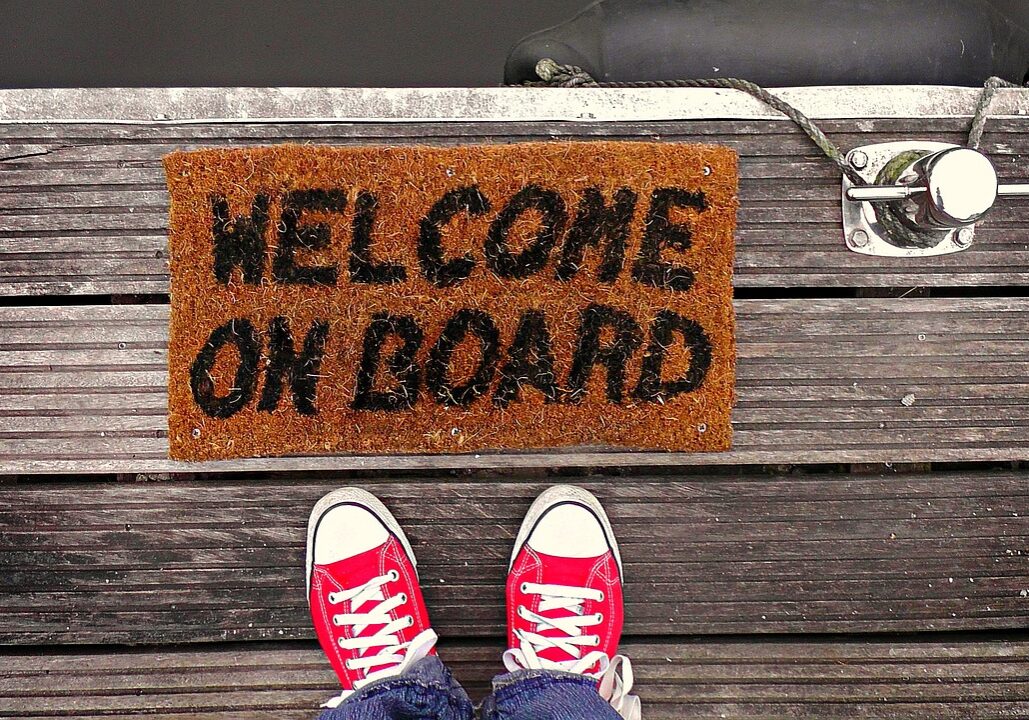Essential Onboarding Checklists for Employers and New Hires

When a job offer is accepted, it’s time for celebration. Of all the candidates and all the weeks spent interviewing, the perfect ONE accepted the job. It’s a win-win. The recruiting and hiring process is over.
But is it really over? Just what happens in the days, weeks, or months between an accepted offer and fully working a job as it was described? The hiring process may be ending, but onboarding is just beginning. Here are essential checklists for employers and new hires so they can get onboarding right.
Employer Onboarding Checklist #1: Maintain Rapport During Written Offer Finalization
After a verbal offer is accepted, employers enter into a critical stage in the hiring process. The new hire is waiting to sign an offer in writing. During negotiations between a new hire and HR, the celebratory rapport an employer once had with the new hire can change. “Often, the employer does a great job of building rapport with the candidate, taking them through the interview process and delivering an offer, but then the relationship is effectively put on hold whilst the HR department processes the offer,” says Daniel Laghaney, LinkedIn. During the time of waiting and negotiating terms, candidates may receive other offers or counter offers. Employers, be sure to continue to build this new relationship during these crucial weeks after the offer. Your new hire may still be waffling or even fielding other offers.
Employer Onboarding Checklist #2: Plan Purposeful Communications
It is crucial that you do not leave your new hire hanging out in no man’s land between positions. As a new employer, you should purposefully communicate with your new hire beyond the information they will receive from human resources. Future team members should take a new hire out to lunch before a start date. A call of congratulations from a senior member of management can also impress a new hire. In the first 30 days, a new employee should already feel part of the company culture. “From the start, it is crucial for a new employee to quickly integrate into the corporate culture, with its complex, unfamiliar relationship and informal networks. Don’t leave that to chance. Schedule get-to-know-you meetings between them and key employees in advance,” says Michael Thiemann, Strategy-Lab, Forbes.
Employers should assign new hires a mentor to go to for questions. ”When you give your new employee a go-to buddy who has been in the organization longer, they have a person to tap for questions, clarification, or just a pick-me-up without stress. Ideally this is not someone from their direct team,” says Stacy Staaterman of Stacey Staaterman Coaching & Consulting.
Employer Onboarding Checklist #3: Plan Realistic Expectations for First 30, 60, 90 Days
Every employer needs to realize that it takes time to acclimate to a new position. No matter how impressive your new hire was in the interview, there is still plenty to learn. Plan for this and communicate goals in increments of 30, 60 and 90 days. Goals can be customized to each person. Setting achievable goals will help a new hire feel successful instead of overwhelmed.
New Hire Onboarding Checklist #1: Handling Negotiation and Counter Offers
One of the first things many new hires do after accepting a verbal offer is negotiate terms. This always goes more smoothly if information is asked early in the hiring process. A recruiter is an excellent source of information to get a candidate early information about work modality, salary, and expected vacation time.
Negotiate any terms with realistic expectations based on research; present requests in a respectful manner. If you receive a counter offer, remember that however flattering this may be, there is a reason you decided to seek out a new position. Most employees that accept counter offers wind up leaving the company. Keep in mind that too much salary negotiation can make a bad first impression, so think carefully about your approach.
New Hire Onboarding Checklist #2: Understand Your New Position
During the time between an accepted offer and start date, a new hire should be actively researching the new position to confirm understanding of what is expected. This could include market research, reading up on the history of the company, and looking into industry trends.
New Hire: Onboarding Checklist #3: Be Timely Completing Tasks
As a new hire, you are making a first impression with everyone, including the human resources representatives you work with for paperwork and other training needs. Be timely with communications even if you are wrapping up your previous position.
Good onboarding is a crucial part of long-term success for any new employee. When an offer is accepted, it is not the end of the job search, but the beginning of onboarding. Artemis Consultants cares about the new hire/ employer relationship in all steps of the hiring, recruiting, and onboarding process.
-Written exclusively for Artemis Consultants by Content Writer Mellody Melville




